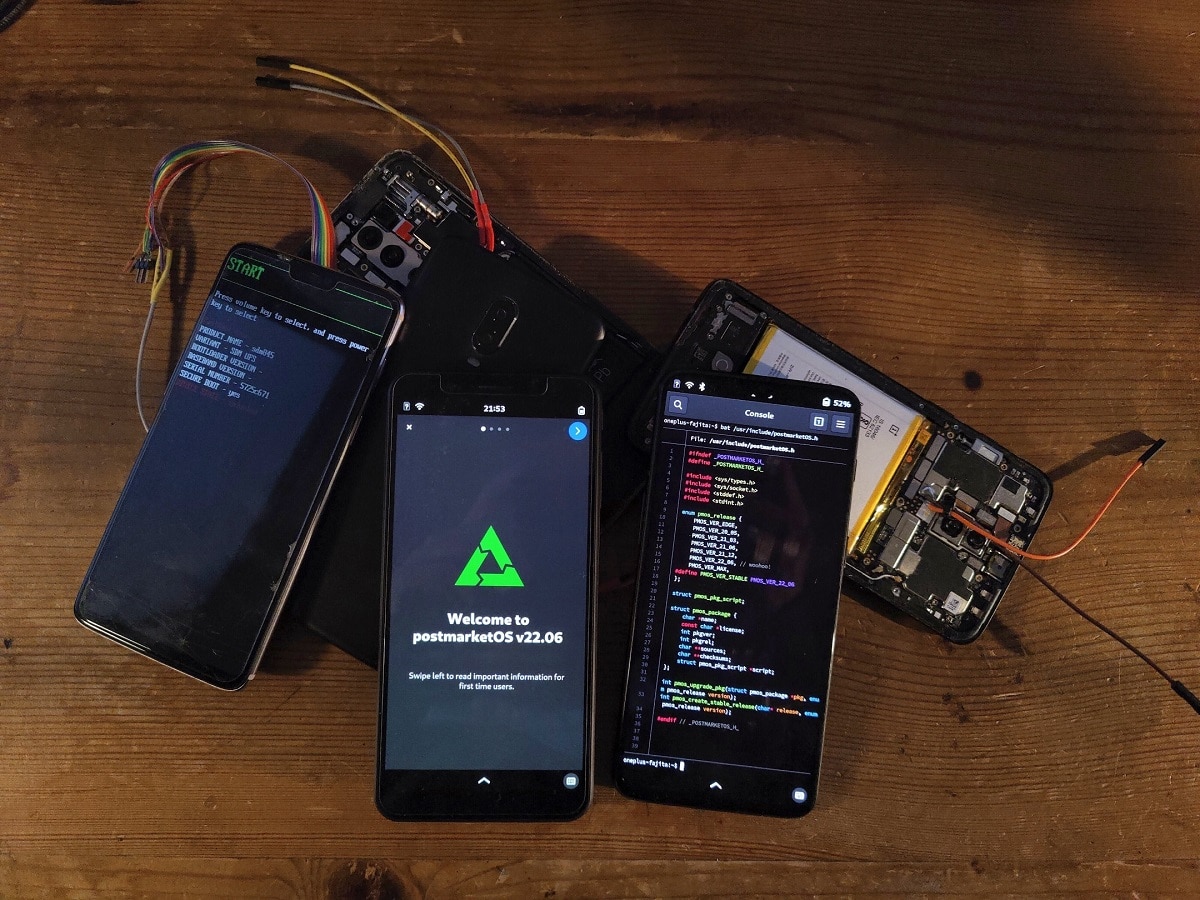
The launch of the new version of the project postmarket OS 22.06, which develops a Linux distribution for smartphones based on the Alpine Linux base package, the Musl standard C library, and the BusyBox suite of utilities.
The goal of the project is to provide a Linux distribution for smartphones that is not dependent on the official firmware support lifecycle and is not tied to the standard solutions of the major industry players that set the development vector.
The postmarketOS environment is as unified as possible and puts all device specific components in a separate package, all other packages are identical for all devices and are based on Alpine Linux packages.
Whenever possible, builds use the standard Linux kernel and, if this is not possible, firmware kernels prepared by device manufacturers. KDE Plasma Mobile, Phosh, and Sxmo are offered as the main user shells, but other environments are available, including GNOME, MATE, and Xfce.
Main novelties of postmarketOS 22.06
This new version of the system that is presented, the base is synchronized with Alpine Linux 3.16, in addition to the preparation cycle of the postmarketOS version was shortened after the formation of the next version of Alpine, as the new version was prepared and tested in 3 weeks, instead of the 6 weeks previously practiced.
Among the novelties that stand out in this new version, we can find that added support for updating the system to a new version of postmarketOS without flashing. Updates are currently only available for systems with Sxmo, Phosh and Plasma Mobile graphical environments.
In its current form, support is provided for upgrading from version 21.12 to 22.06, but an unofficially developed update installation mechanism can be used to switch between any version of postmarketOS, including rolling back to the previous version (for example, you can install "edge", within which the next version is developed, and then go back to version 22.06). Currently only the command line interface for managing updates is available (the postmarketos-release-upgrade package is installed and the postmarketos-release-upgrade utility is launched), but integration with GNOME Software and KDE Discover is expected in the future.
The graphical shell Sxmo (Simple X Mobile), based on the Sway composite manager and adhering to the Unix philosophy, has been updated to version 1.9. The new version adds support for device profiles (for each device, you can use different button layouts and activate certain functions), improved work with Bluetooth, Pipewire is used by default to control media streams, the menus for receiving incoming calls and controlling the sound have been redone, for the management of the services involved superd .
The environment Phosh, updated to version 0.17, who offers minor visible improvements (for example, added a mobile network connection indicator), fixed issues with the transition to sleep mode, and continued to refine the interface. In the future, it is planned to synchronize Phosh components with the GNOME 42 code base and translate applications to GTK4 and libadwaita. Of the applications added to the new postmarketOS version based on GTK4 and libadwaita, the Karlender calendar scheduler stands out.
Another of the changes that stands out in this new version is that the number of devices officially supported by the community increased from 25 to 27: added support for Samsung Galaxy S III and SHIFT 6mq smartphones.
In addition to this, it is also noted that the shell of KDE Plasma Mobile has been updated to version 22.04, of which a detailed review was offered in a separate news item and which using fwupd, it is possible to install alternative firmware for the PinePhone telephone modem.
On the other hand, it is mentioned that added unudhcpd, asimple DHCP server capable of assigning 1 IP address to any client to submit a request. The specified DHCP server was written specifically to organize a communication channel when connecting a computer to a phone via USB (for example, using a connection setup to enter the device via SSH). The server is very compact and not prone to problems connecting the phone to several different computers.
If you are interested in knowing more about it, you can consult the details In the following link.
Download and get
Finally if you are interested in being able get this new version, you should know that builds are ready for PINE64 PinePhone, Purism Librem 5 and 25 community supported devices including Samsung Galaxy A3/A5/S4, Xiaomi Mi Note 2/Redmi 2, OnePlus 6, Lenovo A6000, ASUS MeMo Pad 7 and even Nokia N900.
In addition, limited experimental support has been provided for over 300 devices.